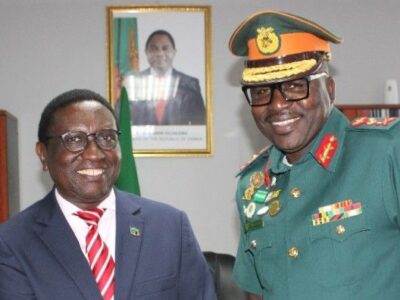The Zambian government and the United National Conference on Trade and Development (UNCTAD) have signed an agreement to modernise customs procedures.
In a statement on Tuesday, Commerce, Trade and Industry permanent secretary, Lillian Bwalya, said the main beneficiary was the Zambia Revenue Authority (ZRA).
“The project is being supported through the European Union (EU) and the Common Market for Eastern and Southern Africa (COMESA) funded under the Zambia Border Posts Upgrading Project (ZBPUP) domiciled in the Ministry,” Bwalya said.
She said the support was valued at US$616,834 to be implemented till May 2024 that would include strengthening of existing automated customs processes through harmonisation of clearance procedures in all customs offices.
Bwalya said the project would further enhance adherence to the agreed customs and trade facilitation principles and procedures.
Read more :policy-group-projects-boost-in-trade-volumes-as-zambia-drc-address-hurdles-in-border-region
The agreement also involved automation of the remaining processes on the Automated System for Customs Data (ASYCUDA) World system and deployment of new Asycuda functionalities.
“These improvements will be made available and configured with the use of the latest Asycuda World version of the software, already deployed at ZRA to maximize the benefits for the customs Authority,” she said.
Bwalya said once fully operationalised, the support would ultimately speed up customs clearance process, improve revenue control and reduce legacy related administrative challenges faced by the private sector when using the Asycuda World System.
She said the government was upbeat that the support was sufficient to underwrite the broader trade facilitation reform process being undertaken.
“Therefore, as a result of this support, it is envisaged that the modernization of customs procedures and improvements in Information and Communication Technology (ICT) management systems will be key in achieving the broader targets by the government on trade facilitation.”
Bwalya noted that the government began the process of reducing the number of border agencies and encoding Coordinated Border Management (CBM) principles within the operational framework for border agencies.
Hence, she said the project would be key to unlocking trade facilitation challenges as it would improve collaboration between border agencies and the private sector thus, having goods and services moving and clearing faster and cheaper.
WARNING! All rights reserved. This material, and other digital content on this website, may not be reproduced, published, broadcast, rewritten or redistributed in whole or in part without prior express permission from ZAMBIA MONITOR.












Comments